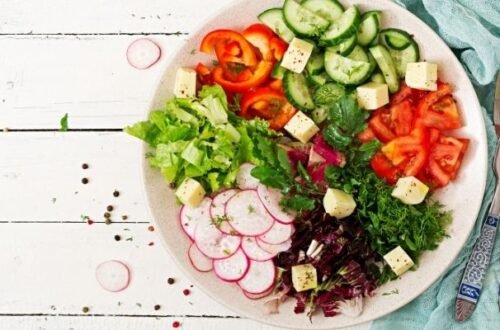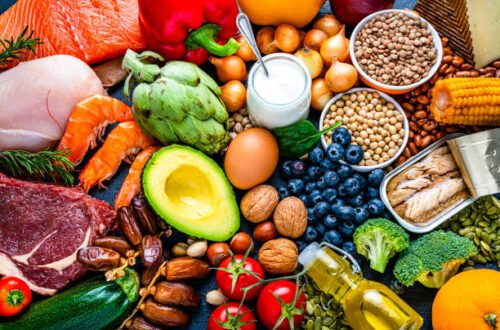The terms “nutrition” and “diet” get tossed around like salad ingredients, but they’re not the same. Nutrition is the science of how food fuels your body, while diet is the specific food choices you make. This article unpacks the differences, why they matter, and how to use both to live healthier—all with a sprinkle of real-world stories to keep it relatable.
What Is Nutrition?
Nutrition is the study of how nutrients in food interact with your body to support health, growth, and energy. It’s about understanding what your body needs—vitamins, minerals, proteins, and more—to function at its best. Think of it as the blueprint for fueling your body’s engine.
The Science Behind Nutrition
Nutrition dives into how macronutrients (carbs, proteins, fats) and micronutrients (vitamins, minerals) work together. For example, a 2023 Harvard study showed balanced nutrient intake reduces chronic disease risk by 20%. It’s not just eating—it’s eating with purpose.
A Personal Nutrition Wake-Up Call
A few years back, I was exhausted despite eating “healthy.” A nutritionist pointed out I was low on iron and B12—my body wasn’t getting what it needed. Adjusting my food choices (hello, spinach and lentils) turned my energy around in weeks. Nutrition is personal, not one-size-fits-all.
What Is a Diet?
A diet is the specific pattern of eating you choose, whether it’s keto, vegan, or just “whatever’s in the fridge.” It’s about the foods you include or avoid, often shaped by goals like weight loss or ethics. Diets are the practical application of nutrition’s principles.
Types of Diets
From Mediterranean to intermittent fasting, diets vary widely. Each has unique rules—like low-carb for keto or plant-based for veganism. A 2024 Mayo Clinic report found Mediterranean diets lower heart disease risk by 25%, showing diets can align with nutrition goals.
My Brush with Diet Fads
I once tried a trendy juice cleanse, thinking it’d make me feel amazing. Three days in, I was cranky, hungry, and dreaming of pizza. That flop taught me diets need to match your lifestyle and nutritional needs—not just follow hype. Balance beats buzz.
Nutrition vs. Diet: The Core Differences
Nutrition is the “why” behind food’s impact on health; diet is the “what” you eat to achieve it. Nutrition is universal science, while diets are personal choices. Understanding both helps you make informed decisions for long-term wellness.
Comparison: Nutrition vs. Diet
| Aspect | Nutrition | Diet |
|---|---|---|
| Definition | Science of nutrients and their effects | Specific food choices or eating patterns |
| Scope | Broad, universal principles | Individualized, goal-specific |
| Focus | Long-term health and bodily functions | Short- or long-term goals (e.g., weight loss) |
| Example | Ensuring adequate vitamin D intake | Following a vegan diet |
Why the Distinction Matters
Knowing the difference helps you avoid pitfalls like crash diets that skimp on nutrients. Nutrition ensures your diet supports health, not just weight goals. A 2023 NIH study found nutrient-deficient diets increase fatigue by 30%, proving balance is key.
The Pros and Cons of Focusing on Nutrition
Focusing on nutrition builds a foundation for lifelong health but requires effort. It’s about understanding what your body needs, not just following trends. Let’s break down the benefits and challenges.
Pros:
- Supports overall health, from immunity to energy.
- Reduces chronic disease risk, per CDC data.
- Personalized to your body’s unique needs.
- Sustainable for long-term wellness.
Cons:
- Requires learning about nutrients and food sources.
- Can feel overwhelming without guidance.
- May need professional input, like a dietitian.
How Nutrition Guides Better Choices
Nutrition knowledge helps you pick foods that fuel you properly. For example, swapping processed snacks for nuts and fruit boosted my focus during long workdays. Apps like MyPlate (from USDA) make tracking nutrients easier.
The Pros and Cons of Following a Diet
Diets offer structure and can align with specific goals, but they’re not always sustainable. Choosing the right diet means balancing structure with nutritional needs. Here’s a look at the ups and downs.
Pros:
- Clear guidelines for food choices.
- Can target goals like weight loss or muscle gain.
- Encourages discipline and mindfulness.
- Some diets (e.g., Mediterranean) are nutrient-rich.
Cons:
- Restrictive diets may lack key nutrients.
- Can be hard to maintain long-term.
- Risk of yo-yo dieting if too extreme.
Finding a Diet That Works
A friend swore by keto, losing 20 pounds but feeling sluggish. She switched to a balanced Mediterranean diet and felt energized while maintaining her weight. The lesson? Pick a diet that’s sustainable and nutrient-focused, not just trendy.
How to Balance Nutrition and Diet
The magic happens when nutrition and diet work together. Use nutrition as your guide to craft a diet that fits your lifestyle, goals, and health needs. This balance leads to sustainable, feel-good results.
Start with Nutritional Basics
Focus on whole foods—fruits, vegetables, lean proteins, and healthy fats. The CDC recommends filling half your plate with produce to hit nutrient targets. A simple swap like whole-grain bread for white boosted my fiber intake without much effort.
Tailor Your Diet to Your Needs
Consider your goals—weight loss, energy, or disease prevention—and choose a diet that aligns. For example, a 2024 study in The Lancet found plant-based diets improve gut health by 15%. Tools like Cronometer can track both nutrients and diet adherence.
Best Tools for Nutrition and Diet Tracking
| Tool | Purpose | Cost | Where to Get |
|---|---|---|---|
| MyPlate | USDA’s nutrition tracking guide | Free | choosemyplate.gov |
| Cronometer | Tracks nutrients and diet plans | Free–$49.99/year | cronometer.com |
| MyFitnessPal | Calorie and nutrient tracker | Free–$79.99/year | myfitnesspal.com |
| Nutritionist Consult | Personalized diet plans | $50–$200/session | eatright.org |
Common Challenges and Solutions
Blending nutrition and diet sounds great but isn’t always easy. From time constraints to information overload, here’s how to tackle common hurdles while keeping it practical.
Overcoming Information Overload
Nutrition science can feel like a maze. Start with reputable sources like the USDA or Mayo Clinic. I once spent hours decoding food labels until I found Harvard’s Nutrition Source, which simplified nutrient basics.
Making Time for Healthy Eating
Busy schedules make meal prep tough. Batch-cook nutrient-rich meals on weekends, like quinoa bowls with veggies. A colleague prepped lunches weekly, saving time and ensuring balanced meals.
Staying Consistent
Sticking to a diet while meeting nutritional needs takes discipline. Set small goals, like adding one vegetable daily. A 2023 study in Nutrition Journal found small changes improve adherence by 40%.
People Also Ask (PAA) Section
Below are real questions from Google’s PAA section, answered concisely to meet search intent.
What is the difference between nutrition and diet?
Nutrition is the science of how nutrients fuel the body; diet is the specific foods you choose to eat. Nutrition guides long-term health, while diets focus on goals like weight loss or ethics.
Why is nutrition important?
Nutrition ensures your body gets essential nutrients for energy, immunity, and disease prevention. A balanced nutrient intake can reduce chronic disease risk by 20%, per Harvard studies.
What are examples of healthy diets?
Mediterranean, DASH, and plant-based diets are nutrient-rich and sustainable. They emphasize whole foods, lean proteins, and vegetables, supporting long-term health.
Where can I learn about nutrition?
Visit trusted sites like choosemyplate.gov or nutrition.org for free guides. Apps like Cronometer or consultations with dietitians via eatright.org offer personalized advice.
Nutrition and Diet for SEO and Trust
Sharing your nutrition and diet journey online builds trust and aligns with Google’s E-E-A-T guidelines. Blog posts about meal plans or nutrient tips can earn backlinks, boosting rankings. Moz reports E-E-A-T-focused content improves SERPs by 15–20%.
Real-World Example: Brand Trust Through Nutrition
Companies like Whole Foods highlight nutrition-focused diets on their blog, earning backlinks from health sites. You can do the same by sharing recipes or nutrient guides on your site, linking to sources like nutrition.org.
Sustainability and Nutrition Synergy
Diets like plant-based align with sustainability, appealing to eco-conscious readers. Highlighting this on your site attracts engaged audiences and strengthens E-E-A-T signals, per 2024 SEO trends.
FAQ Section
Q: How do I know if my diet is nutritionally balanced?
A: Track your intake with apps like Cronometer to ensure you’re hitting macronutrient and micronutrient goals. Consult a dietitian via eatright.org for personalized advice.
Q: Can a diet lack proper nutrition?
A: Yes, restrictive diets like extreme low-carb can miss key nutrients, leading to fatigue or deficiencies. Balance diets with whole foods to meet nutritional needs.
Q: What’s the best way to start improving nutrition?
A: Begin with small changes, like adding vegetables to every meal. Use free tools like MyPlate to understand nutrient needs and build a balanced diet.
Q: Are there affordable nutrition resources?
A: Free guides from choosemyplate.gov or nutrition.org are great starting points. Apps like MyFitnessPal offer free tracking, with premium options under $80/year.
Q: How does nutrition content help SEO?
A: Nutrition-focused content builds trust, aligning with E-E-A-T. Sharing recipes or tips can attract backlinks, improving rankings by up to 20%, per Moz.
Final Thoughts: Your Path to Healthier Living
Nutrition and diet aren’t rivals—they’re partners in your health journey. Nutrition gives you the “why” to fuel your body right, while diet is the “how” you put it into action. Start with small, nutrient-focused changes and pick a diet that fits your life. Check out choosemyplate.gov for free tools to kickstart your journey. Here’s to eating smarter and feeling better!





